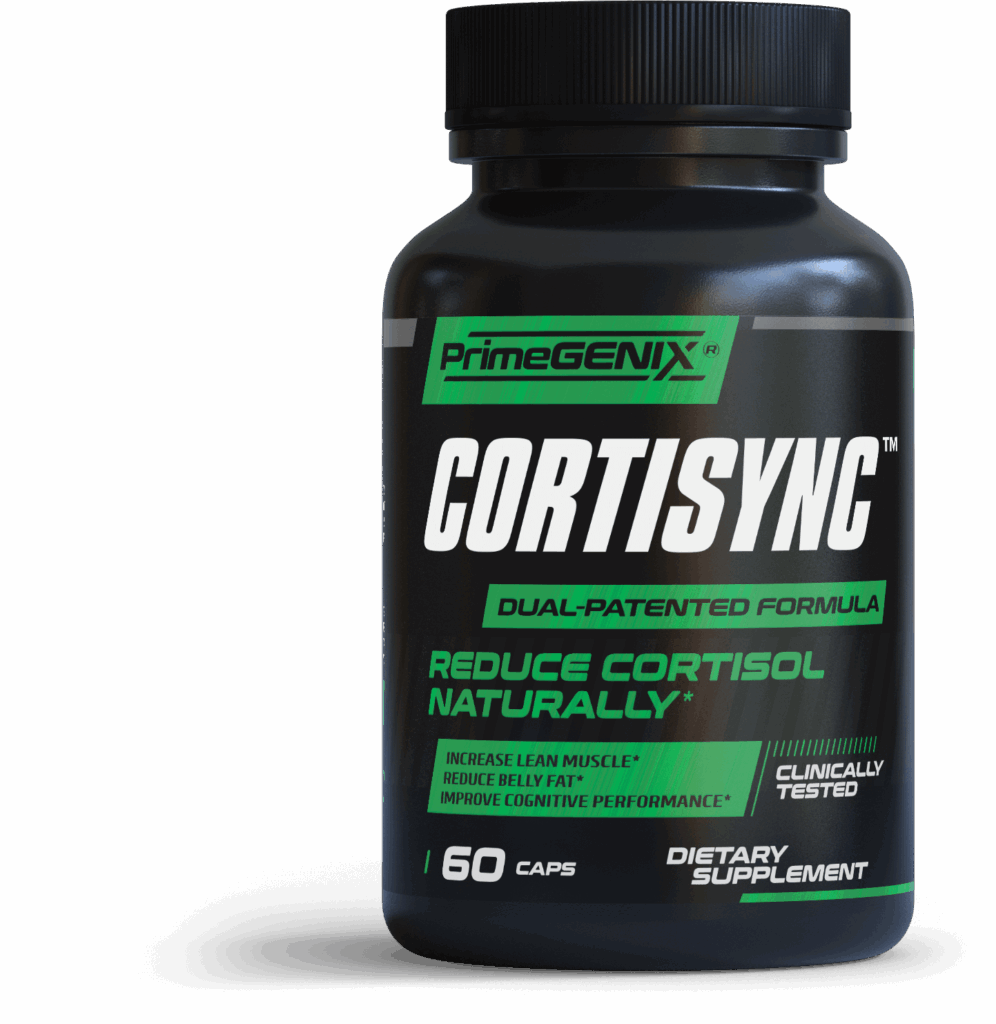Sleep is one of life’s most fundamental needs, yet millions of people struggle with poor sleep quality night after night. While many factors can affect sleep, one of the most significant yet often overlooked culprits is cortisol—your body’s primary stress hormone. Understanding the intricate relationship between cortisol and sleep can be the key to unlocking better rest and improved overall health.
What Is Cortisol and Why Does It Matter?
Cortisol, often called the “stress hormone,” is produced by your adrenal glands as part of your body’s natural stress response system. Under normal circumstances, cortisol follows a predictable daily rhythm called the circadian cycle. Levels typically peak in the early morning hours to help you wake up and gradually decline throughout the day, reaching their lowest point in the evening to prepare your body for sleep.
This natural cortisol rhythm is essential for maintaining healthy sleep-wake cycles. However, when this delicate balance is disrupted by chronic stress, poor lifestyle habits, or other factors, it can wreak havoc on your ability to fall asleep and stay asleep.
The Science Behind Cortisol and Sleep Disruption
Research has consistently shown that elevated cortisol levels, especially in the evening, can significantly impair sleep quality. A study published in the Journal of Clinical Endocrinology & Metabolism found that individuals with higher nighttime cortisol levels experienced more fragmented sleep and reduced deep sleep phases (Balbo et al., 2010).
The mechanism behind this disruption is complex but well-documented. Cortisol directly interferes with the production of melatonin, your body’s natural sleep hormone. When cortisol levels remain elevated in the evening, melatonin production is suppressed, making it difficult to feel drowsy and fall asleep naturally (Zeitzer et al., 2000).
Additionally, elevated cortisol can cause hyperarousal—a state of heightened alertness that makes it nearly impossible to achieve the relaxed state necessary for quality sleep. This creates a vicious cycle: poor sleep leads to increased stress, which elevates cortisol levels, which further disrupts sleep.
The Physical and Mental Toll of Cortisol-Related Sleep Issues
The consequences of cortisol-disrupted sleep extend far beyond feeling tired the next day. Chronic sleep deprivation caused by elevated cortisol can lead to:
Physical Health Impact:
- Weakened immune system function
- Increased risk of cardiovascular disease
- Weight gain and metabolic dysfunction
- Accelerated aging processes
- Reduced muscle recovery and growth
Mental Health and Cognitive Effects:
- Impaired memory consolidation
- Decreased focus and concentration
- Increased risk of anxiety and depression
- Reduced emotional regulation
- Poor decision-making abilities
Research published in Sleep Medicine Reviews demonstrates that individuals with chronically elevated cortisol levels are 2-3 times more likely to develop insomnia and other sleep disorders (Meerlo et al., 2008).
Identifying the Signs of Cortisol-Related Sleep Problems
How can you tell if cortisol is affecting your sleep? Common signs include:
- Difficulty falling asleep despite feeling physically tired
- Waking up frequently during the night
- Early morning awakenings (typically between 2-4 AM)
- Feeling wired or anxious at bedtime
- Racing thoughts when trying to sleep
- Waking up feeling unrefreshed despite adequate sleep duration
- Afternoon energy crashes followed by evening alertness
If you experience several of these symptoms regularly, elevated cortisol may be interfering with your sleep quality.
Natural Strategies for Managing Cortisol and Improving Sleep
Fortunately, there are several evidence-based approaches to help regulate cortisol levels and improve sleep quality:
Stress Management Techniques: Chronic stress is one of the primary drivers of elevated cortisol. Incorporating stress-reduction practices such as meditation, deep breathing exercises, or yoga can help lower cortisol levels. A study in Psychoneuroendocrinology showed that mindfulness meditation reduced cortisol levels by up to 23% in participants (Turakitwanakan et al., 2013).
Sleep Hygiene Optimization: Creating an environment conducive to sleep can help normalize cortisol rhythms. This includes maintaining a cool, dark bedroom, avoiding screens before bedtime, and establishing a consistent sleep schedule. Research indicates that exposure to blue light in the evening can delay cortisol’s natural decline (Zeitzer et al., 2000).
Regular Exercise (With Timing Considerations): While exercise is beneficial for overall health and can help regulate cortisol in the long term, timing matters. High-intensity exercise close to bedtime can temporarily spike cortisol levels. Aim to complete vigorous workouts at least 3-4 hours before bedtime.
Dietary Considerations: Certain foods and nutrients can help support healthy cortisol levels. Omega-3 fatty acids, magnesium, and foods rich in tryptophan can promote better sleep. Conversely, excessive caffeine, alcohol, and high-sugar foods can disrupt cortisol patterns and sleep quality.
The Role of Adaptogenic Herbs in Cortisol Management
Traditional medicine has long recognized the power of adaptogenic herbs—plants that help the body adapt to and manage stress. Modern research has validated many of these traditional uses, showing that specific adaptogens can effectively lower cortisol levels and improve sleep quality.
Ashwagandha, often called the “king of adaptogens,” has been extensively studied for its cortisol-reducing properties. Clinical trials have shown that ashwagandha supplementation can reduce cortisol levels by up to 30% while significantly improving sleep quality scores (Chandrasekhar et al., 2012).
Other well-researched adaptogens include rhodiola rosea, holy basil, and lemon balm, each offering unique benefits for stress reduction and sleep improvement. The advantage of adaptogenic herbs is their ability to help normalize cortisol levels without causing sedation or dependency.
When to Seek Professional Help
While natural approaches can be highly effective for many people, some individuals may need professional support to address cortisol-related sleep issues. Consider consulting a healthcare provider if:
- Sleep problems persist despite implementing lifestyle changes
- You experience severe daytime fatigue or mood changes
- Sleep issues are accompanied by other concerning symptoms
- You have a history of chronic stress or trauma
Healthcare providers can perform cortisol testing and develop personalized treatment plans that may include therapeutic interventions, prescription medications, or specialized sleep studies.
The Long-Term Benefits of Balanced Cortisol
When cortisol levels are properly managed and sleep quality improves, the benefits extend throughout your entire life. People with balanced cortisol typically experience:
- Enhanced cognitive function and memory
- Improved mood and emotional stability
- Better physical performance and recovery
- Stronger immune system function
- Healthier weight management
- Increased energy and vitality
The investment in managing cortisol and improving sleep quality pays dividends in every aspect of health and well-being.

Introducing PrimeGENIX® CortiSync: A Science-Based Solution
For men looking for a comprehensive, natural approach to cortisol management, PrimeGENIX® CortiSync offers a scientifically-formulated solution. This innovative supplement combines seven powerful adaptogenic ingredients, each backed by clinical research for their cortisol-reducing properties.
The cornerstone ingredient, Sensoril®, is a patented form of ashwagandha that has been tested in 14 human clinical studies. Research has shown that Sensoril® can reduce cortisol levels by up to 24% while improving sleep quality by an impressive 67%. The formula also includes holy basil, L-theanine, lemon balm, rhodiola, and other proven adaptogens that work synergistically to support healthy cortisol balance.
What sets CortiSync apart is its focus on addressing the root cause of elevated cortisol rather than just masking symptoms. By supporting adrenal function and promoting the body’s natural stress response, CortiSync helps restore healthy cortisol rhythms without requiring major lifestyle changes. The formula is manufactured in FDA-inspected facilities in the USA and comes with a 67-day money-back guarantee, making it a risk-free option for men seeking to reclaim their sleep quality and overall vitality.
References:
- Balbo, M., Leproult, R., & Van Cauter, E. (2010). Impact of sleep and its disturbances on hypothalamo-pituitary-adrenal axis activity. International Journal of Endocrinology, 2010, 759234.
- Chandrasekhar, K., Kapoor, J., & Anishetty, S. (2012). A prospective, randomized double-blind, placebo-controlled study of safety and efficacy of a high-concentration full-spectrum extract of ashwagandha root in reducing stress and anxiety in adults. Indian Journal of Medical Research, 136(2), 145-152.
- Meerlo, P., Sgoifo, A., & Suchecki, D. (2008). Restricted and disrupted sleep: effects on autonomic function, neuroendocrine stress systems and stress responsivity. Sleep Medicine Reviews, 12(3), 197-210.
- Turakitwanakan, W., Mekseepralard, C., & Busarakumtragul, P. (2013). Effects of mindfulness meditation on serum cortisol of medical students. Journal of the Medical Association of Thailand, 96 Suppl 1, S90-95.
- Zeitzer, J. M., Dijk, D. J., Kronauer, R., Brown, E., & Czeisler, C. (2000). Sensitivity of the human circadian pacemaker to nocturnal light: melatonin phase resetting and suppression. Journal of Physiology, 526(3), 695-702.





